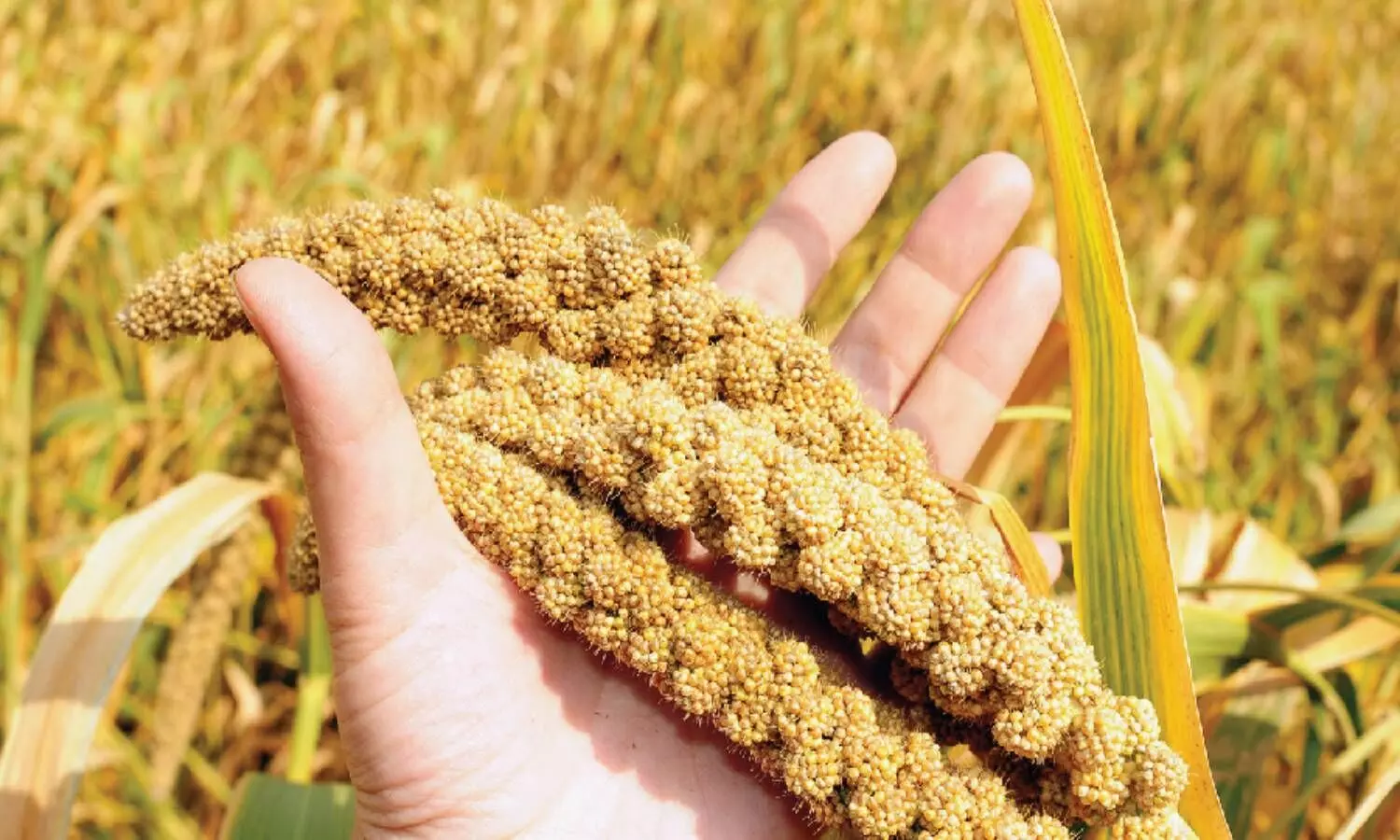Millets can combat obesity, reduce risk of developing heart disease: Study
Published in Frontiers in Nutrition, the study backed the efforts to popularize millets as diets especially staples, to combat the growing prevalence of obesity in children, adolescents and adults.
By Newsmeter Network
Hyderabad: A new study has revealed that eating millets can combat obesity and reduce the risk of developing cardiovascular disease.
The study was undertaken by five organizations led by the International Crops Research Institute for the Semi-Arid Tropics (ICRISAT). The researchers analyzed data of 19 studies with nearly 900 people.
Published in Frontiers in Nutrition, the study backed the efforts to popularize millets as diets especially staples, to combat the growing prevalence of obesity in children, adolescents and adults.
The study showed that consuming millets reduced total cholesterol by 8%, lowering it from high to normal levels in the people studied. There was nearly a 10% decrease in low and very low-density lipoprotein cholesterol (commonly viewed as 'bad cholesterol') and triacylglycerol levels in the blood. Through these reductions, the levels went from above normal to normal range. In addition, consuming millets decreased blood pressure with the diastolic blood pressure (the bottom number in the BP reading) decreasing by 5%.
"We were very surprised how many studies on humans had already been undertaken on the impact of millets on elements that impact cardiovascular diseases, and this is the very first time anyone has collated all these studies and analyzed their data to test the significance of the impact. We used a meta-analysis, and results came out very strongly to show significant positive impact on risk factors for cardiovascular disease," said Dr. S Anitha, the study's lead author and Senior Nutritionist at ICRISAT.
The study also showed that consuming millets reduced BMI by 7% in people who were overweight and obese (from 28.5 ± 2.4 to 26.7 ± 1.8 kg/m2), showing the possibility of returning to a normal BMI (<25 kg/m2). All results are based on consumption of 50 to 200 g of millets per day for a duration ranging from 21 days to four months.
These findings are influenced by comparisons that show that millets are much higher in unsaturated fatty acids, with 2 to 10 times higher levels than refined wheat and milled rice as well as being much higher than whole grain wheat.
"Unhealthy diet is a major contributor to the rising incidence of diseases, like cardiovascular disease and diabetes. The results of this study along with our recent study that showed that the consumption of millets reduced the risk of developing type 2 diabetes and help manage type 2 diabetes highlights a critical need to look carefully at how to most appropriately bring millets back into the diets in India and ensure this reaches the majority," said Dr. Hemalatha, Director, National Institute of Nutrition (NIN).
Dr. Jacqueline Hughes, Director General, ICRISAT said obesity is increasing in both wealthy and poorer countries. "So the need for solutions based on healthier diets is critical. This new information on the health benefits of millets further support the need to invest more in the grain, including its whole value chain from better varieties for farmers through to agribusiness developments," Dr Hughes said
The study identified different research areas including the need to study all different types of millets, understand any differences by variety alongside the different types of cooking and processing of millets and their impact on cardiovascular health. Given the positive indicators to date, more detailed analysis on the impact of millets on weight management are also recommended. All relevant parameters are also recommended to be assessed to gain a deeper understanding of the impacts millets consumption on hyperlipidemia and cardiovascular disease.
"As a doctor, I have seen first-hand a significant rise over the years in patients with serious coronary problems from high cholesterol and being overweight. Based on the evidence in this study we can help reduce hypertension and hardening and narrowing of arteries and manage weight with appropriate diet changes including millets. However, it is important to consume a millet-based and healthy diet regularly and make it a habit," said Dr Raj Kumar Bhandari, medico and co-author of the study.
Dr. Ananthan Rajendran, study co-author and scientist at NIN said nutrition scientists must design millet-based meals especially where weight management and atherosclerotic cardiovascular diseases are potential high risks. "Doing this In culturally acceptable ways and ensuring tasty meals is important," he said.
Joanna Kane-Potaka, a co-author and Executive Director of the Smart Food initiative, ICRISAT, said a key recommendation of the study is for government and industry to support efforts to diversify staples with millets, especially across Asia and Africa. "Given that millets are hardy and climate smart, returning to this traditional staple makes a lot of sense and is a critical solution that could be the turning point of some major health issues," highlighted," she said.
Professor Ian Givens, a co-author of the study and Director at University of Reading's Institute of Food, Nutrition and Health (IFNH) in the UK, said this latest review further emphasizes the potential of millets as a staple crop that has many health benefits. "It also strengthens the evidence that eating millet can contribute to better cardiovascular health by reducing unhealthy cholesterol levels and increasing the levels of whole grains and unsaturated fats in the diet," he said.